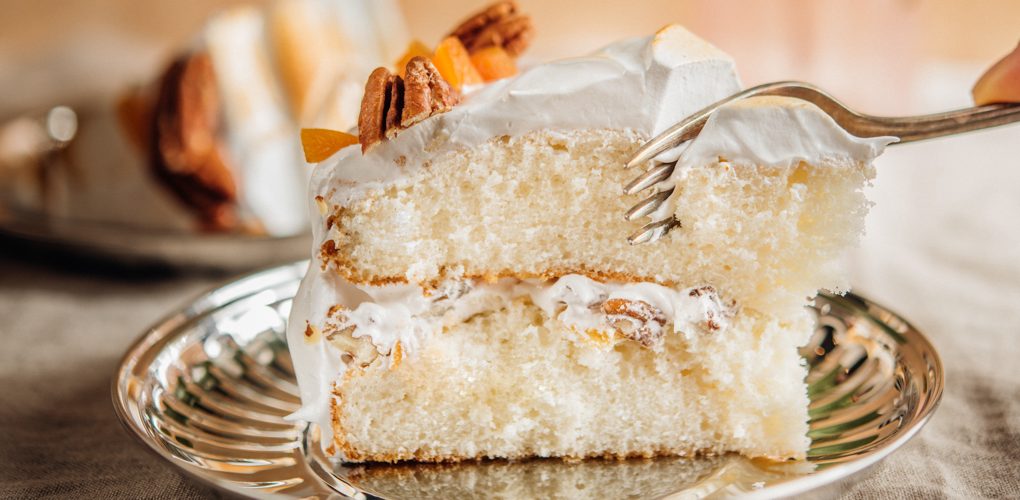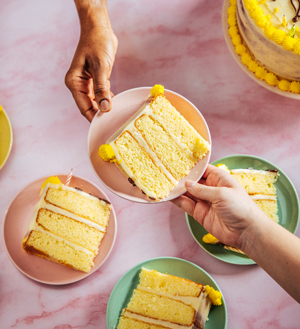What is cake flour, and why is it better for baking cakes?

Cake flour is finer, softer and has the least gluten.
Cake flour is finer and softer, which makes a finer textured cake. It’s made from fine, soft winter wheat, as opposed to the tougher spring wheat that’s used to make all-purpose flour – and at Swans Down we make our flour even finer by sifting it through silk 27 times.
Cake flour also has the lowest protein (gluten) content and the highest starch content of any flour, which helps produce the lightest, fluffiest cakes possible. (Gluten is stretchy and gooey – great for baking bread that needs a bit of chewiness – but cake needs to be airy and delicate, so the less gluten, the better.)
Enjoy this slice of cake science.
Rose Levy Beranbaum is one of America’s most admired baking experts and authors. Here are some of her observations about cake flour from her 1988 classic baking guide, The Cake Bible:
- Because of its finer granulation, cake flour absorbs fat and moisture more quickly than hard spring wheat. The size of the gas cells in a cake determines the quality of the grain of the finished cake and is directly dependent upon how much the batter expands during baking before the cells rupture. This is influenced partly by the size of the flour particles, partly by the batter’s pH, and partly by the type of shortening used.*
- Cake flour, due to bleaching by chlorination, has a lower pH than other flours. This produces a sweeter flavor and a finer, more velvety crumb because the greater acidity lowers the temperature at which the proteins coagulate. This also makes it possible for the cake structure to support more sugar, butter and heavier particles such as chopped nuts or chocolate.*
Can I substitute other flours for cake flour?
The short answer is, maybe. However, baking is an exact science, and if the recipe calls for cake flour, which contains approximately 6% protein (gluten), then using another flour with a 10% or 15% gluten content will undoubtedly change the texture and overall outcome of the cake. So while there are a few ideas for cake-flour substitutes out there, most experienced bakers will recommend using actual cake flour when a recipe calls for it.
*Excerpted from The Cake Bible by Rose Levy Beranbaum (Harper Collins, 1988) p. 471.

